- Home
- Arthur Conan Doyle
Sir Nigel Page 2
Sir Nigel Read online
Page 2
I. THE HOUSE OF LORING
In the month of July of the year 1348, between the feasts of St.Benedict and of St. Swithin, a strange thing came upon England, for outof the east there drifted a monstrous cloud, purple and piled, heavywith evil, climbing slowly up the hushed heaven. In the shadow of thatstrange cloud the leaves drooped in the trees, the birds ceased theircalling, and the cattle and the sheep gathered cowering under thehedges. A gloom fell upon all the land, and men stood with their eyesupon the strange cloud and a heaviness upon their hearts. They creptinto the churches where the trembling people were blessed and shriven bythe trembling priests. Outside no bird flew, and there came no rustlingfrom the woods, nor any of the homely sounds of Nature. All was still,and nothing moved, save only the great cloud which rolled up and onward,with fold on fold from the black horizon. To the west was the lightsummer sky, to the east this brooding cloud-bank, creeping ever slowlyacross, until the last thin blue gleam faded away and the whole vastsweep of the heavens was one great leaden arch.
Then the rain began to fall. All day it rained, and all the nightand all the week and all the month, until folk had forgotten the blueheavens and the gleam of the sunshine. It was not heavy, but it wassteady and cold and unceasing, so that the people were weary of itshissing and its splashing, with the slow drip from the eaves. Always thesame thick evil cloud flowed from east to west with the rain beneathit. None could see for more than a bow-shot from their dwellings for thedrifting veil of the rain-storms. Every morning the folk looked upwardfor a break, but their eyes rested always upon the same endless cloud,until at last they ceased to look up, and their hearts despaired ofever seeing the change. It was raining at Lammas-tide and raining at theFeast of the Assumption and still raining at Michaelmas. The crops andthe hay, sodden and black, had rotted in the fields, for they were notworth the garnering. The sheep had died, and the calves also, so therewas little to kill when Martinmas came and it was time to salt the meatfor the winter. They feared a famine, but it was worse than famine whichwas in store for them.
For the rain had ceased at last, and a sickly autumn sun shone upona land which was soaked and sodden with water. Wet and rotten leavesreeked and festered under the foul haze which rose from the woods.The fields were spotted with monstrous fungi of a size and color nevermatched before--scarlet and mauve and liver and black. It was as thoughthe sick earth had burst into foul pustules; mildew and lichen mottledthe walls, and with that filthy crop Death sprang also from thewater-soaked earth. Men died, and women and children, the baron of thecastle, the franklin on the farm, the monk in the abbey and the villeinin his wattle-and-daub cottage. All breathed the same polluted reek andall died the same death of corruption. Of those who were stricken nonerecovered, and the illness was ever the same--gross boils, raving, andthe black blotches which gave its name to the disease. All through thewinter the dead rotted by the wayside for want of some one to bury them.In many a village no single man was left alive. Then at last the springcame with sunshine and health and lightness and laughter--the greenest,sweetest, tenderest spring that England had ever known--but only halfof England could know it. The other half had passed away with the greatpurple cloud.
Yet it was there in that stream of death, in that reek of corruption,that the brighter and freer England was born. There in that dark hourthe first streak of the new dawn was seen. For in no way save by a greatupheaval and change could the nation break away from that iron feudalsystem which held her limbs. But now it was a new country which came outfrom that year of death. The barons were dead in swaths. No high turretnor cunning moat could keep out that black commoner who struck themdown.
Oppressive laws slackened for want of those who could enforce them, andonce slackened could never be enforced again. The laborer would be aslave no longer. The bondsman snapped his shackles. There was much to doand few left to do it. Therefore the few should be freemen, name theirown price, and work where and for whom they would. It was the blackdeath which cleared the way for that great rising thirty years laterwhich left the English peasant the freest of his class in Europe.
But there were few so far-sighted that they could see that here, asever, good was coming out of evil. At the moment misery and ruin werebrought into every family. The dead cattle, the ungarnered crops, theuntilled lands--every spring of wealth had dried up at the same moment.Those who were rich became poor; but those who were poor already, andespecially those who were poor with the burden of gentility upon theirshoulders, found themselves in a perilous state. All through Englandthe smaller gentry were ruined, for they had no trade save war, and theydrew their living from the work of others. On many a manor-house therecame evil times, and on none more than on the Manor of Tilford, wherefor many generations the noble family of the Lorings had held theirhome.
There was a time when the Lorings had held the country from the NorthDowns to the Lakes of Frensham, and when their grim castle-keeprising above the green meadows which border the River Wey had been thestrongest fortalice betwixt Guildford Castle in the east and Winchesterin the west. But there came that Barons' War, in which the King used hisSaxon subjects as a whip with which to scourge his Norman barons, andCastle Loring, like so many other great strongholds, was swept fromthe face of the land. From that time the Lorings, with estates sadlycurtailed, lived in what had been the dower-house, with enough forsplendor.
And then came their lawsuit with Waverley Abbey, and the Cistercianslaid claim to their richest land, with peccary, turbary and feudalrights over the remainder. It lingered on for years, this great lawsuit,and when it was finished the men of the Church and the men of the Lawhad divided all that was richest of the estate between them. There wasstill left the old manor-house from which with each generation therecame a soldier to uphold the credit of the name and to show the fivescarlet roses on the silver shield where it had always been shown--inthe van. There were twelve bronzes in the little chapel where Matthewthe priest said mass every morning, all of men of the house of Loring.Two lay with their legs crossed, as being from the Crusades. Six othersrested their feet upon lions, as having died in war. Four only lay withthe effigy of their hounds to show that they had passed in peace.
Of this famous but impoverished family, doubly impoverished by law andby pestilence, two members were living in the year of grace 1349--LadyErmyntrude Loring and her grandson Nigel. Lady Ermyntrude's husband hadfallen before the Scottish spearsmen at Stirling, and her son Eustace,Nigel's father, had found a glorious death nine years before thischronicle opens upon the poop of a Norman galley at the sea-fight ofSluys. The lonely old woman, fierce and brooding like the falcon mewedin her chamber, was soft only toward the lad whom she had brought up.All the tenderness and love of her nature, so hidden from others thatthey could not imagine their existence, were lavished upon him.She could not bear him away from her, and he, with that respect forauthority which the age demanded, would not go without her blessing andconsent.
So it came about that Nigel, with his lion heart and with the blood ofa hundred soldiers thrilling in his veins, still at the age of two andtwenty, wasted the weary days reclaiming his hawks with leash and lureor training the alans and spaniels who shared with the family the bigearthen-floored hall of the manor-house.
Day by day the aged Lady Ermyntrude had seen him wax in strength and inmanhood, small of stature, it is true, but with muscles of steel--and asoul of fire. From all parts, from the warden of Guildford Castle, fromthe tilt-yard of Farnham, tales of his prowess were brought back to her,of his daring as a rider, of his debonair courage, of his skill with allweapons; but still she, who had both husband and son torn from her bya bloody death, could not bear that this, the last of the Lorings, thefinal bud of so famous an old tree, should share the same fate. With aweary heart, but with a smiling face, he bore with his uneventful days,while she would ever put off the evil time until the harvest was better,until the monks of Waverley should give up what they had taken, untilhis uncle should die and leave money for his outfit, or any other excu
sewith which she could hold him to her side.
And indeed, there was need for a man at Tilford, for the strife betwixtthe Abbey and the manor-house had never been appeased, and still on onepretext or another the monks would clip off yet one more slice of theirneighbor's land. Over the winding river, across the green meadows, rosethe short square tower and the high gray walls of the grim Abbey, withits bell tolling by day and night, a voice of menace and of dread to thelittle household.
It is in the heart of the great Cistercian monastery that this chronicleof old days must take its start, as we trace the feud betwixt the monksand the house of Loring, with those events to which it gave birth,ending with the coming of Chandos, the strange spear-running of TilfordBridge and the deeds with which Nigel won fame in the wars. Elsewhere,in the chronicle of the White Company, it has been set forth what mannerof man was Nigel Loring. Those who love him may read herein those thingswhich went to his making. Let us go back together and gaze upon thisgreen stage of England, the scenery, hill, plain and river even as now,the actors in much our very selves, in much also so changed in thoughtand act that they might be dwellers in another world to ours.

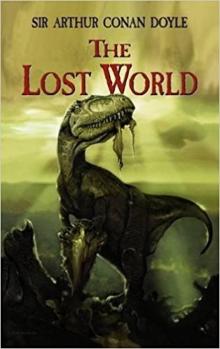 The Lost World
The Lost World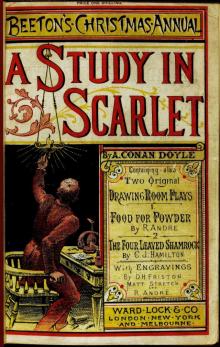 A Study in Scarlet
A Study in Scarlet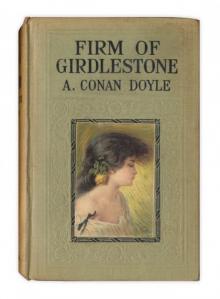 The Firm of Girdlestone
The Firm of Girdlestone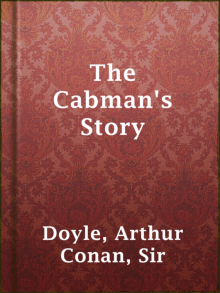 The Cabman's Story
The Cabman's Story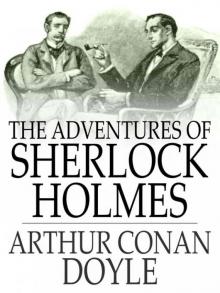 The Adventures of Sherlock Holmes
The Adventures of Sherlock Holmes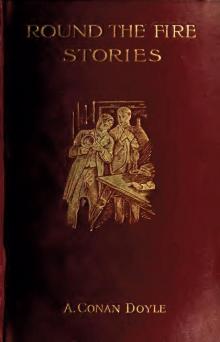 Round the Fire Stories
Round the Fire Stories His Last Bow: An Epilogue of Sherlock Holmes
His Last Bow: An Epilogue of Sherlock Holmes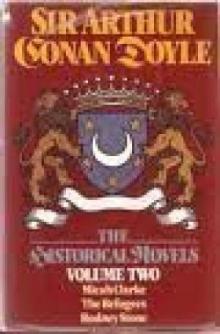 Micah Clarke
Micah Clarke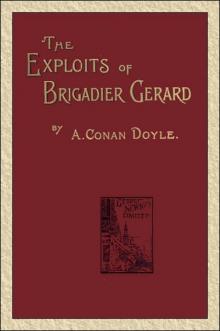 The Exploits of Brigadier Gerard
The Exploits of Brigadier Gerard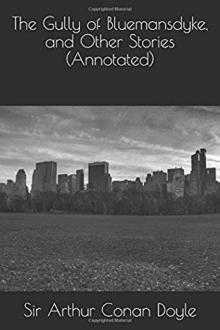 The Gully of Bluemansdyke, and Other stories
The Gully of Bluemansdyke, and Other stories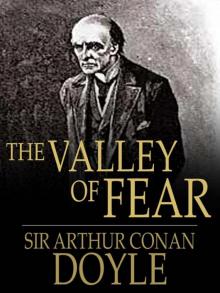 The Valley of Fear
The Valley of Fear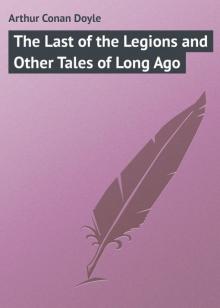 The Last of the Legions and Other Tales of Long Ago
The Last of the Legions and Other Tales of Long Ago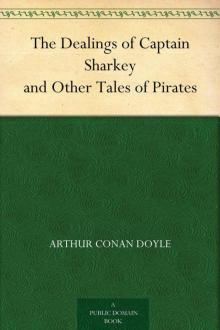 The Dealings of Captain Sharkey, and Other Tales of Pirates
The Dealings of Captain Sharkey, and Other Tales of Pirates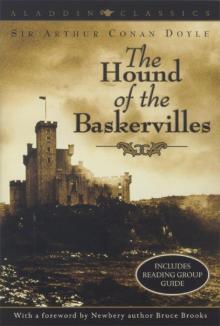 The Hound of the Baskervilles
The Hound of the Baskervilles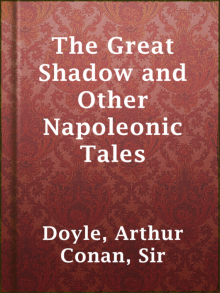 The Great Shadow and Other Napoleonic Tales
The Great Shadow and Other Napoleonic Tales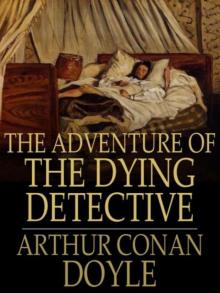 The Adventure of the Dying Detective
The Adventure of the Dying Detective The Man from Archangel, and Other Tales of Adventure
The Man from Archangel, and Other Tales of Adventure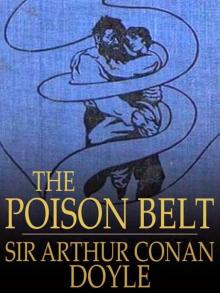 The Poison Belt
The Poison Belt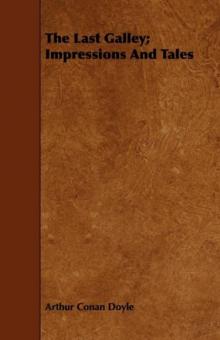 The Last Galley; Impressions and Tales
The Last Galley; Impressions and Tales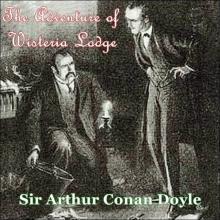 The Adventure of Wisteria Lodge
The Adventure of Wisteria Lodge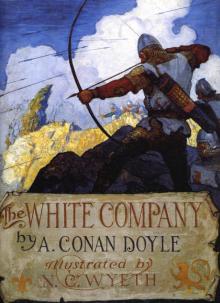 The White Company
The White Company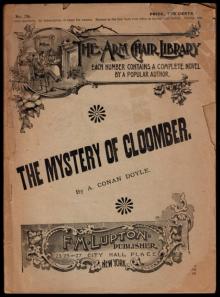 The Mystery of Cloomber
The Mystery of Cloomber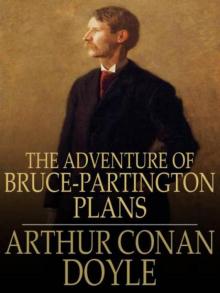 The Adventure of the Bruce-Partington Plans
The Adventure of the Bruce-Partington Plans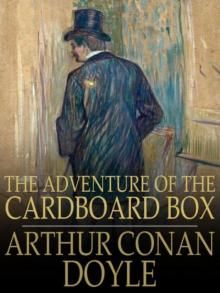 The Adventure of the Cardboard Box
The Adventure of the Cardboard Box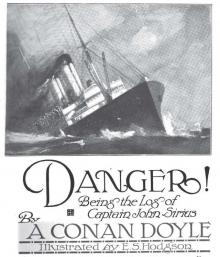 Danger! and Other Stories
Danger! and Other Stories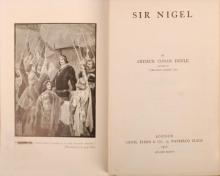 Sir Nigel
Sir Nigel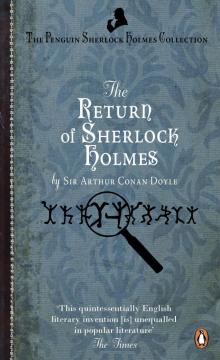 The Return of Sherlock Holmes
The Return of Sherlock Holmes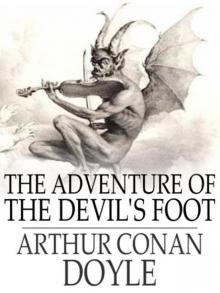 The Adventure of the Devil's Foot
The Adventure of the Devil's Foot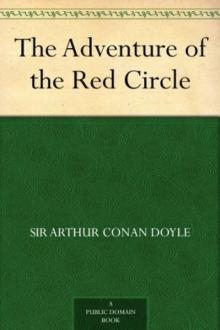 The Adventure of the Red Circle
The Adventure of the Red Circle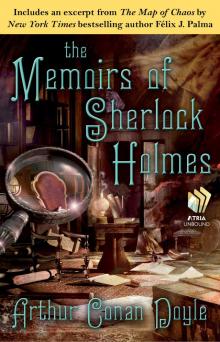 The Memoirs of Sherlock Holmes
The Memoirs of Sherlock Holmes The Adventure of the Yellow Face
The Adventure of the Yellow Face The Adventure of the Norwood Builder
The Adventure of the Norwood Builder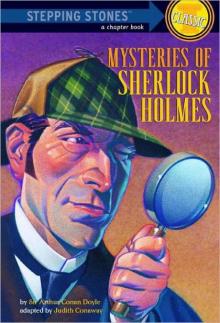 Mysteries of Sherlock Holmes
Mysteries of Sherlock Holmes The Adventure of the Missing Three-Quarter
The Adventure of the Missing Three-Quarter The Adventure of the Final Problem
The Adventure of the Final Problem A Scandal in Bohemia
A Scandal in Bohemia His Last Bow shssc-4
His Last Bow shssc-4 Beyond The City
Beyond The City The Adventure of the Gloria Scott
The Adventure of the Gloria Scott The Parasite
The Parasite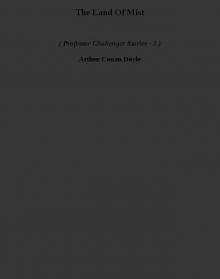 The Land Of Mist pcs-3
The Land Of Mist pcs-3 The Adventure of the Musgrave Ritual
The Adventure of the Musgrave Ritual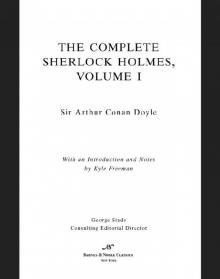 The Complete Sherlock Holmes, Volume I (Barnes & Noble Classics Series)
The Complete Sherlock Holmes, Volume I (Barnes & Noble Classics Series) The Adventure of the Stockbroker's Clerk
The Adventure of the Stockbroker's Clerk The Adventure of the Copper Beeches
The Adventure of the Copper Beeches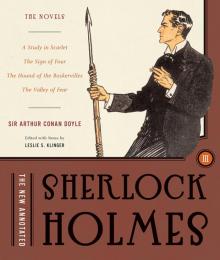 The New Annotated Sherlock Holmes
The New Annotated Sherlock Holmes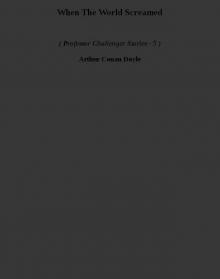 When The World Screamed pcs-5
When The World Screamed pcs-5 The Adventure of the Six Napoleons
The Adventure of the Six Napoleons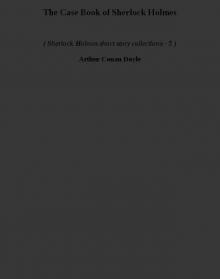 The Case Book of Sherlock Holmes shssc-5
The Case Book of Sherlock Holmes shssc-5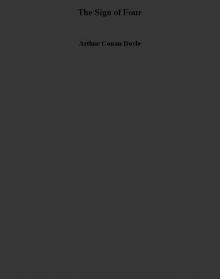 The Sign of Four
The Sign of Four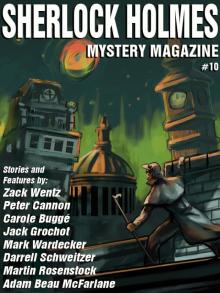 Sherlock Holmes Mystery Magazine #10
Sherlock Holmes Mystery Magazine #10 The Adventures of Brigadier Gerard
The Adventures of Brigadier Gerard The Adventure of the Second Stain
The Adventure of the Second Stain The Adventure of the Engineer's Thumb
The Adventure of the Engineer's Thumb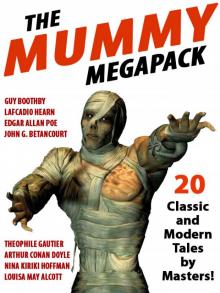 The Mummy Megapack
The Mummy Megapack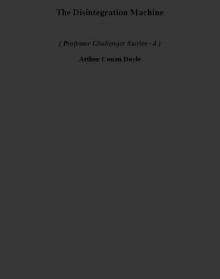 The Disintegration Machine pcs-4
The Disintegration Machine pcs-4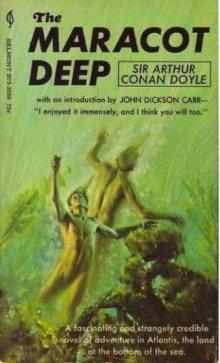 The Maracot Deep
The Maracot Deep The Five Orange Pips
The Five Orange Pips The Adventure of the Crooked Man
The Adventure of the Crooked Man The Adventure of the Blue Carbuncle
The Adventure of the Blue Carbuncle The Adventure of Silver Blaze
The Adventure of Silver Blaze The Adventure of the Solitary Cyclist
The Adventure of the Solitary Cyclist The Adventure of the Naval Treaty
The Adventure of the Naval Treaty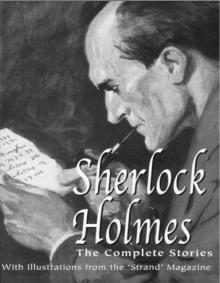 Sherlock Holmes. The Complete Stories
Sherlock Holmes. The Complete Stories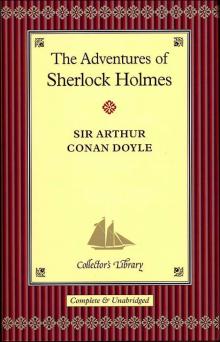 The Adventures of Sherlock Holmes (sherlock holmes)
The Adventures of Sherlock Holmes (sherlock holmes) The Adventure of the Empty House
The Adventure of the Empty House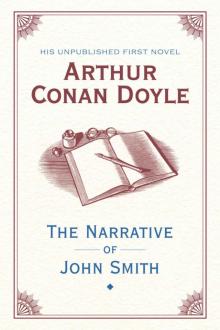 The Narrative of John Smith
The Narrative of John Smith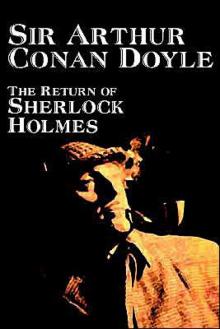 The Return of Sherlock Holmes (sherlock holmes)
The Return of Sherlock Holmes (sherlock holmes) The New Revelation
The New Revelation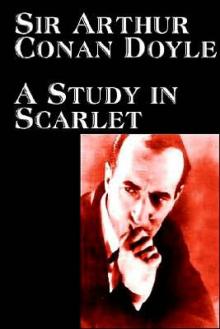 A Study in Scarlet (sherlock holmes)
A Study in Scarlet (sherlock holmes) The Vital Message
The Vital Message Sherlock Holmes Complete Collection
Sherlock Holmes Complete Collection Round the Red Lamp
Round the Red Lamp The Boscombe Valley Mystery
The Boscombe Valley Mystery The Adventure of the Beryl Coronet
The Adventure of the Beryl Coronet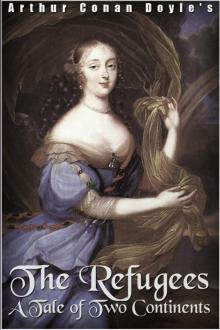 The Refugees
The Refugees The Adventure of the Three Students.
The Adventure of the Three Students.